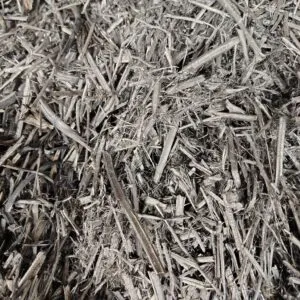
In the global drive toward verifiable carbon removal and circular material economies, the spotlight is rapidly turning to advanced soil and material amendments. Among the most potent and promising of these sustainable products is Biochar. This highly stable, porous carbon material, derived from the pyrolysis of sustainable biomass, specifically hemp residuals, is fundamentally changing practices across agriculture, environmental remediation, and manufacturing. High-grade Biochar is more than just charcoal; it is a meticulously engineered material characterized by an immense surface area, long-term carbon sequestration capability, and unique physiochemical properties that drastically improve nutrient retention and water management in soils. For industries seeking a measurable, high-impact solution for sustainability and performance enhancement, understanding the production and broad applicability of quality Biochar is the first step toward true ecological innovation.
Informational Deep Dive: The Science of Production and Property of Sustainable Biochar
The creation of premium Biochar is a precise thermochemical conversion process known as pyrolysis, where hemp biomass (such as Hurd Chips or Dry Hemp Stalks) is heated in a low-oxygen environment. This process decomposes the organic material into a stable, carbon-rich solid (the Biochar), a liquid (bio-oil), and a gas (syngas). The quality of the final product—its stability, surface area, and pore structure—is highly dependent on the feedstock purity and the specific temperature and residence time used during pyrolysis.
Engineering the Excellence of High-Purity Biochar
The unique effectiveness of specialized Biochar is rooted in its highly recalcitrant, poly-aromatic carbon structure. This structure ensures that the material remains stable in soil for centuries, effectively sequestering carbon that would otherwise be released back into the atmosphere. Crucially, its vast surface area and microporosity create an ideal habitat for beneficial soil microbes, while simultaneously enhancing the soil’s cation exchange capacity (CEC). This higher CEC enables the soil to hold essential nutrients, like nitrogen and phosphorus, preventing them from leaching out, and thereby maximizing fertilizer efficiency. The supplier meticulously controls the production parameters to ensure the resulting Biochar achieves the ideal balance of pH, surface area, and stable carbon content required for various high-performance applications.
Localized Processing and Quality Control in Langley, BC, Canada
The supply chain integrity for high-grade Biochar is paramount, beginning with the source material and ending with the final, certified product. Operating from their established processing hub at 2547 208 St. Langley, BC V2Z 2B1 Canada, they control the entire conversion process, starting with the selection of optimal hemp feedstock materials, such as clean Hurd Chips. This level of local control allows them to ensure batch-to-batch consistency and tailor the Biochar’s properties—including particle size distribution and volatile carbon content—to meet the precise specifications of industrial buyers. The commitment to a domestic, visible, and transparent production process ensures clients receive verifiable, superior-grade Biochar every time.
A Complete Circular Economy Approach: Biochar from Hemp Byproducts
The production of Biochar closes the loop in the hemp materials economy. They utilize residual biomass, such as lower-grade Hurd Chips and excess Dry Hemp Stalks, that may not be suitable for higher-value fiber applications (like White Filaments or Raw Bast Ribbon). By converting these residuals into premium Biochar, they embody a zero-waste industrial philosophy, maximizing the value extracted from every part of the harvested hemp plant. This holistic approach not only yields a valuable end-product but also further strengthens the environmental profile of the entire supply chain.
Commercial Imperatives: Driving Profitability and Sustainability with Advanced Biochar
The commercial appeal of industrial-grade Biochar is dual-layered: it enhances the operational efficacy of agricultural and environmental projects while simultaneously providing verifiable carbon sequestration credits. This makes it a powerful asset for companies committed to meeting rigorous environmental, social, and governance (ESG) standards. Companies using Biochar are not merely purchasing an additive; they are investing in a long-term carbon asset that improves resource efficiency.
Segmentation and Cluster Targeting with Engineered Biochar
The supplier recognizes that a single Biochar product cannot serve all markets effectively. Therefore, they segment their product offering to target distinct clusters:
- Agricultural Cluster: They supply a porous, high-CEC Biochar ideal for large-scale soil amendment, focusing on water retention and fertilizer efficiency for commercial farming operations.
- Environmental Cluster: For water filtration and pollutant remediation, they offer ultra-fine, highly activated Biochar powders optimized for adsorption of heavy metals and organic contaminants.
- Industrial/Construction Cluster: They provide a specialized, coarse-granule Biochar used as a lightweight, functional filler in cementitious materials and specialized composites, leveraging its density and stability.
This targeted approach ensures that industrial partners receive the most commercially relevant and functionally effective grade of Biochar for their specific technological requirements.
Geo-Relevancy and the Visibility of North American Biochar
Sourcing industrial quantities of Biochar from a secure, reputable North American location like their facility enhances both reliability and market visibility. Clients can confidently trace the material’s origin, verifying its sustainable provenance from Canadian-grown hemp biomass. This high degree of transparency and the assurance of adherence to stringent North American industrial and environmental standards translate directly into greater brand trust for clients incorporating the Biochar into their products or processes. This regional focus minimizes long-haul logistics, further reducing the overall embodied carbon footprint of the final Biochar product. The company hempower stands as a beacon of consistent quality in this emerging market.
Transactional Reliability: Ensuring High-Volume, Consistent Biochar Supply
For large-scale industrial adoption, the supply of Biochar must be reliable, scalable, and tailored to the client’s material handling capabilities. They have built their logistics and processing volume around the demand of industrial users, ensuring a transaction process that is smooth and dependable from initial inquiry to bulk delivery.
Logistical Excellence for Bulk Biochar Procurement
The handling and delivery of bulk Biochar requires specific logistics to maintain product integrity and manage density variability. They offer flexible packaging and delivery solutions, including customized truckload quantities and large, sealed bulk bags, designed to integrate directly into client receiving facilities, whether they are applying it to hundreds of acres of farmland or incorporating it into a composite manufacturing line. They are equipped to discuss specialized requirements and initiate supply agreements for high-volume orders. Inquiries can be directed to their procurement team at 778 554 7697.
Technical Consulting and Application Support for Biochar Integration
Their commitment to clients transcends mere product delivery; they offer expert technical consultation on the optimal application and integration of their specialized Biochar. This includes guidance on appropriate blend ratios for soil applications, dispersion techniques for composite materials, and testing protocols to maximize the carbon sequestration and functional benefits of the material within the client’s existing framework. This partnership approach ensures that clients quickly realize the full, measurable potential of incorporating premium Biochar into their operations.
Securing the Future: Long-Term Biochar Sourcing
Given the increasing market demand for carbon credits and sustainable raw materials, securing a long-term, fixed-volume supply of Biochar is a crucial strategic move. They offer robust, multi-year supply contracts, providing industrial clients with the material security and predictable pricing needed to invest confidently in large-scale projects and product development centered around this remarkable carbon-negative material.
FAQs
Q1: How does the carbon sequestration of Biochar work, and how long does it last?
The carbon sequestration of Biochar involves transforming carbon from short-cycle biomass into a highly stable, inert form of carbon during pyrolysis. This stable form is highly resistant to decomposition, allowing the carbon to remain sequestered in the soil for hundreds, if not thousands, of years.
Q2: What is the recommended application rate for agricultural use of this high-grade Biochar?
The application rate of their specialized Biochar varies significantly based on soil type, crop, and desired outcome; however, they provide detailed consultation and recommended starting rates tailored to specific farming operations to ensure maximum effectiveness.
Q3: Is the Biochar supplied certified for organic or specific environmental standards?
They are committed to adherence to relevant domestic and international standards. While specific certifications depend on the final product grade, they ensure all production processes are environmentally responsible and can provide documentation to support client certification efforts regarding the Biochar.
Q4: Can the size and surface area of the Biochar particles be customized for industrial filtration?
Yes, the particle size and surface characteristics of the Biochar can be customized through post-pyrolysis processing (such as grinding and activation) to meet the precise adsorption and flow characteristics required for specific industrial liquid and air filtration applications.
Q5: What are the necessary steps to transition to using bulk Biochar in a manufacturing process?
To transition to using their bulk Biochar, prospective clients should contact the technical sales team at 778 554 7697 to discuss material handling requirements, required specifications, and the establishment of a tailored delivery schedule.
Q6: Does the process of creating Biochar from hemp create any hazardous byproducts?
The advanced pyrolysis process they employ is carefully managed to safely capture all outputs (bio-oil and syngas), which can be utilized as energy sources, making the process highly efficient and virtually eliminating hazardous waste, yielding clean, functional Biochar as the stable solid product.
Conclusion
The integration of advanced Biochar into industrial and agricultural operations is one of the most powerful steps a company can take toward achieving verifiable environmental stewardship and material performance goals. This exceptional, carbon-negative product, derived from sustainable hemp biomass, offers unparalleled benefits in soil health, carbon sequestration, and material functionality. By choosing a partner dedicated to purity, precision, and reliable high-volume supply, you secure the material foundation for a sustainable future. To begin a partnership and procure a consistent, high-grade supply of specialized Biochar, contact hempower today at 778 554 7697.





